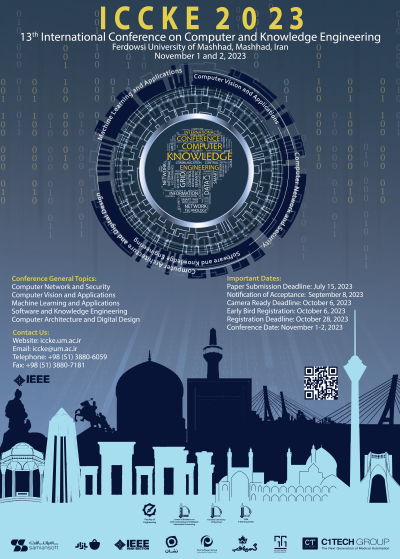0% Complete

Authors :
Keywords :
Abstract :
List of archived papers
Abolghasem Rezaei Khesal - Mehdi Teimouri
Abolfazl Dibaji - Sadegh Sulaimany
Seyed majid Hosseini - Seyedeh Mozhgan Rahmatinia - Seyed Amin Hosseini Seno - Hadi Sadoghi yazdi
Amirhossein Ghaemi - Seyyed Amir Mousavi mobarakeh - Habibollah Danyali - Kamran Kazemi
Mostafa Sabzekar - Seyed Vahid Mousavainejad
Farzaneh Kazemzadeh - Amir Karian - Mitra Mirzarezaee - Ali Asghar Safaei
Fatemeh Naserizadeh - Erfan Akbarnezhad Sany - Parsa Sinichi - Seyyed Abed Hosseini
Amir Mohammad Sharafaddini - Najme Mansouri
Mohammad Shahraeini - Shahla Khormali - Ahad Alvandi
Pooyan Rahmanzadeh Gervi - Ahad Harati - Sayed Kamaledin Ghiasi-Shirazi




